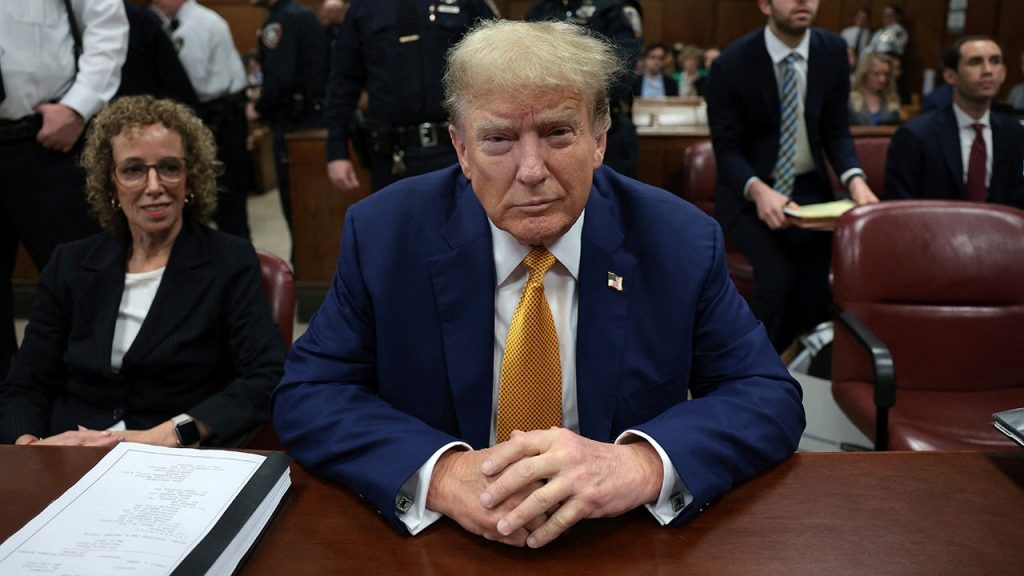Legal experts criticized Stormy Daniels’ testimony as “prejudicial” during the court proceedings where former President Trump’s legal team moved to declare a mistrial, which was ultimately denied by presiding Judge Juan Merchan. Daniels detailed her alleged sexual encounter with Trump in 2006, with prosecutors alleging that Trump’s former attorney paid her to keep quiet about the encounter. The case revolves around alleged falsification of business records related to this payment. Legal experts, including a former U.S. ambassador to Israel, expressed concern that Daniels’ testimony was irrelevant and prejudicial to the case.
The testimony of Stormy Daniels, a former pornographic actress, drew criticism from legal experts for being salacious and irrelevant to the case. Daniels detailed her interactions with Trump in 2006 and her involvement in the pornography industry. The case in question involves alleged falsification of business records related to hush money paid to Daniels to stay silent about her alleged encounter with Trump. Critics argued that the explicit details of Daniels testimony were unnecessary and intended to punish Trump rather than serve the merits of the case.
Former President Trump and his legal team called for a mistrial, arguing that the prosecution had no case and had gone too far. Trump claimed that the case was a witch hunt and an attempt to interfere in elections. However, the motion for mistrial was denied by Judge Merchan, who acknowledged that some of Daniels’ testimony may have been unnecessary. Legal experts and commentators on social media voiced their concerns about the relevance and prejudice of Daniels’ testimony, raising questions about the fairness of the trial proceedings.
During the trial, Daniels described her alleged encounter with Trump in 2006 and the subsequent payment made to her through his former attorney, Michael Cohen. Prosecutors alleged that Trump falsified business records to conceal the payment, which they argue was intended to influence the 2016 election. Trump’s defense team objected to the explicit details of Daniels’ testimony, questioning its relevance to the case. Some commentators suggested that the judge had lost control of the courtroom by allowing such testimony.
The defense team repeatedly objected to prosecutors’ questions about intimate details of Daniels’ alleged sexual encounter with Trump, arguing that it was unnecessary and prejudicial. Trump’s team raised concerns about Daniels’ credibility, noting that she had previously signed a statement denying the encounter. However, Daniels claimed that she had signed the statement unwillingly and under the terms of a non-disclosure agreement. The judge acknowledged that some of the testimony may have been unnecessary but noted that the defense team should have objected more frequently.
Overall, legal experts and commentators criticized the court proceedings for allowing irrelevant and prejudicial testimony from Stormy Daniels. Critics argued that the explicit details of Daniels’ testimony were unnecessary and intended to punish Trump rather than serve the merits of the case. The judge acknowledged that some of the testimony may have been unnecessary and that the defense team should have objected more frequently. Despite the controversy surrounding Daniels’ testimony, the trial continued, with prosecutors working to prove that Trump falsified business records related to the hush money payment to Daniels.


